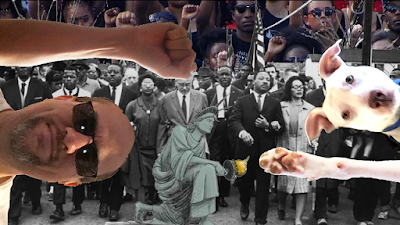Diversity as a Core Value = Social Progress + Organizational Productivity
Mark Katsouros
November 23, 2020
It is human instinct to favor the company of those who have similar backgrounds to ourselves and think like we do, whether it be out of “comfort,” self-validation, or just plain mental laziness. But, when it comes to growth, learning, and problem-solving, this is hardly a formula for success. In fact, people who hire a bunch of others who are just like themselves are paying a bunch of money for no real gain, and risk an overdose of confirmation bias. The best, most productive teams are made up of diverse individuals with very different origins, backgrounds, experiences, and thus approaches. They appreciate each other's differences, learn from each other, supplement each other, leverage each other’s strengths, and truly create a whole that is greater than the sum of its parts.
I recently read a piece from the World Economic Forum, “Diversity, Equity and Inclusion 4.0” (from where the image below came), that fully supports this philosophy. The piece discusses both the social justice aspects of diversity, equity, and inclusion (the moral and legal imperatives), as well as the often-forgotten economic imperative—that diversity, equity, and inclusion are essential, not just to social progress, but also to team performance, organizational productivity, and the overall economic vitality of an organization. And, while this may take some team-jelling time to develop, the data supports the positive impact of diversity on team performance:
As this piece explains, “Successful organizations are powered by the diverse opinions, skill sets and life experiences of their employees. To tap into the full potential of human diversity, organizations need to hire diverse talent and create an inclusive working culture underpinned by a fundamental sense of belonging, fairness and equity, enabling people to bring their ‘full self’ to work.
Having a sense of belonging at work means that the work environment provides high psychological safety and employees can bring their full selves to work without fear of judgement. Employees feel comfortable expressing their opinions and ideas freely, and are appreciated for their unique contributions and recognized for their accomplishments.
Inclusive organizations take wider responsibility not just for the impact they have on their employees’ lives but also on the broader communities in which they operate, working towards social justice and equity for all.”
Another piece I recently read, Cristian Grossmann’s “3 Ways to Use Value Alignment to Increase Business Success,” addresses this well:
“According to a recent Glassdoor survey, values and culture top the list of employee satisfaction factors. So increasing your employees’ awareness of value alignment will give them a deeper understanding of the company’s purpose and their guiding principles. This connection inevitably leads to increased engagement.
Leaders should always ask themselves ‘what are the values of my organization?’ They should have a firm grasp of those core values. If leaders of the company don’t appear to believe and exhibit company values, employees won’t either. Leaders need to authentically embody the values they want in their organization and their team.”
My long-held belief: The most exciting, productive, rewarding, and successful work environments hire for alignment of values and diversity of backgrounds/culture/experiences, knowledge/skills, and overall strengths. One must hire with this approach to maximize both individual employee satisfaction and the team’s/organization’s collective success. Talk about a win-win!





No comments:
Post a Comment